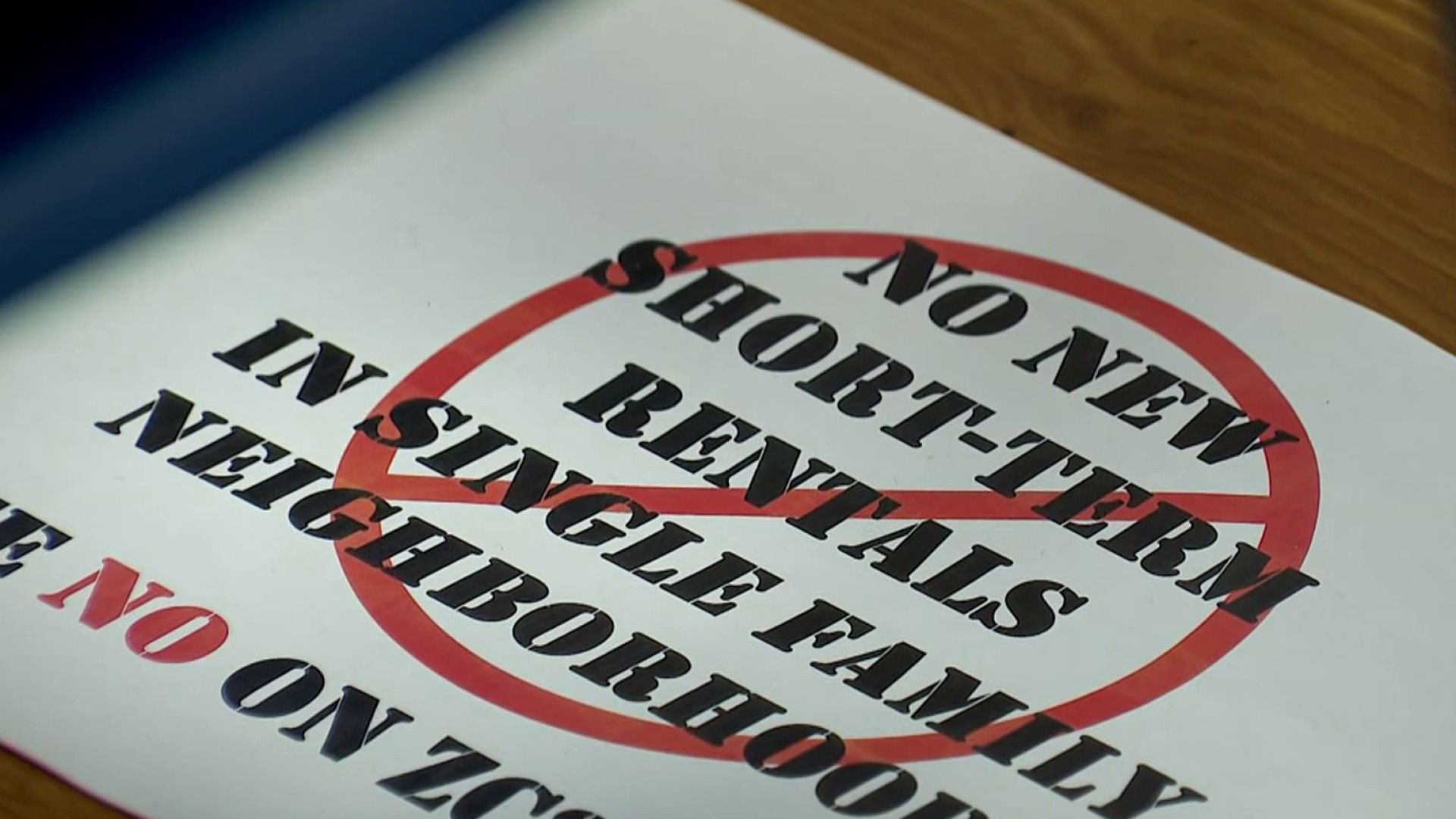H-E-B's plan to build three new stores in Collin County is being celebrated in some circles while being criticized in others.
Stores are set to open in a few years in Plano, Frisco and in the city of McKinney which announced the news this week.
The fanfare that comes with big arrivals including beloved Texas grocer H-E-B serves as a cruel reminder for others desperate for quality grocers in their neighborhoods.
“Metaphorically it’s adding salt to the wound,” said Dallas City Council member Casey Thomas.
Get DFW local news, weather forecasts and entertainment stories to your inbox. Sign up for NBC DFW newsletters.
Those working for years to lure brand-name grocers to Dallas, particularly south of I-30, say these kinds of announcements are just another heartbreak.
Anga Sanders of Feed Oak Cliff says she’s used to it.
“They just leap right over the southern sector of Dallas,” she said.
Local
The latest news from around North Texas.
According to the city of Dallas, approximately 450,000 people live in so-called Dallas ‘food deserts,’ where grocery stores, farmers’ markets, and healthy food providers are often miles away.
Some residents resort to corner stores for their needs, while others venture to other neighborhoods and cities for food.
Although H-E-B bought land in North Oak Cliff in 2016, the company has not yet announced a start date for the project.
Dallas City Council member Chad West, who represents this section of Bishop Arts tells NBC 5 that H-E-B representatives recently told him ‘they are coming.’ However, the company wants to first finish rehabbing their tornado-ravaged Central Market store in North Dallas and build a Central Market along McKinney Avenue in Uptown.
There is also talk of H-E-B potentially requesting there be retail, multi-family or office space included in order to begin an Oak Cliff project.
Sanders calls grocers like H-E-B ‘short-sighted’ for not placing emphasis on the potential for success in Oak Cliff, especially given areas with a food desert.
“If they located in the southern sector, they’d basically be the only game in town and draw from far outside that one-mile radius that they look at,” she said.
The city is also still considering whether to purchase the ‘Save U More’ in the Highland Hills food desert area in Southeast Dallas. The store closed in January.
Some neighbors said poor stock led to the store’s decline in recent months.
The store opened in 2016 after the city gave a $2.9 million grant to the developer to renovate the shopping center and open the grocery store.
In return, the developer was supposed to keep a store available to the neighborhood for 10 years.
Thomas said the city is in contact with the owner on what can be done to bring in a grocery store in the same location, though critics say the city should not continue to shell out taxpayer money on a failed project.
What goes into a company decision about where to set up shop?
A spokesperson for H-E-B tells NBC 5, they consider market demand, population growth and real estate availability.
The company considers purchasing new land or choosing among properties previously purchased.
‘The tremendous growth in Collin County is no secret, and the number of requests we received from residents to build here has been overwhelming. With these factors in mind, opening stores in Collin County is a natural fit,’ said company spokesperson Mabrie Jackson.
The city of Mansfield is also eagerly awaiting H-E-B.
A plan to bring the grocer there has been in the works since 2016.
A spokesperson for the city of Mansfield told NBC 5 on Friday they have no update on their project at this time.
Recent data presented during a recent city council committee meeting shows the average resident living in a Dallas food desert earns about $15,000 a year.
Not everyone, argues Thomas.
“There are individuals who own $250-$350,000 homes that live in my district,” he said. “We have disposable income, money to spend on groceries.”
Thomas points to elderly southern Dallas residents who own their homes and those who shop at wholesale membership stores in surrounding cities.
“I don’t see this as a poverty issue,” said Thomas. “I see it as a perception issue. Anybody who lives south of I-30 is perceived as poor or low income.”
Sanders accuses brand-name grocers of ‘disregarding’ 40% of the population of Dallas.
She says companies should not focus so much on average annual income.
“The average spend on groceries is not dependent on income, it’s dependent on the number of people you have to feed,” said Sanders.
Sanders has, for years, tried luring in quality grocers to the area as part of ‘Feed Oak Cliff.’
The non-profit is also receiving funding for its ongoing effort to open a non-profit grocery store.
Leaders traveled down to Waco years ago to see that city’s store with the concept.
Sanders says Oak Cliff is more likely to see their non-profit community owned grocery store before a brand-name grocer move in.
“Stay tuned,” said Sanders with a smile followed by a laugh.
When asked if residents would have to wait five or ten years for the non-profit grocer, Sanders responded with another smile saying, ‘No. No.’



